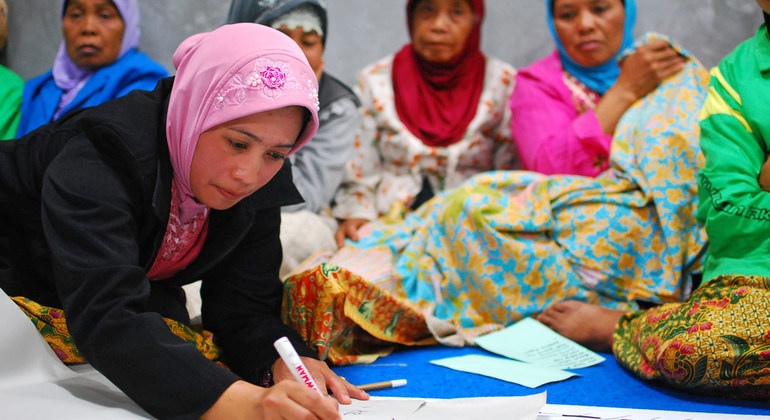Mr. Rybakov made the case that “antidiscrimination legislature remains an important tool” to help even up gender equality while pointing to the need to address “the burden of unpaid care and domestic work” on women and girls, “which hinder their participation in education and employment”.
“The subsidiary bodies and UN system recognize that all this means that we need a profound over hall of our current development models”, he remarked, including to replace “silo thinking” with “integrated policies”, particularly in dealing with hunger and poverty.
“It is time to step up efforts to achieve empowerment, inclusion and equality and to realize the SDGs”, concluded Mr. Rybakov.
‘Act now with renewed commitment’
In his opening remarks, Liu Zhenmin, chief of the UN’s Department of Economic and Social Affairs, underscored the “powerful message” of the 17 SDGs, calling on countries to “join forces” to create “an equitable, prosperous and sustainable future for all”.
However, noting critical challenges, he pointed out that “the clock is ticking”.
“The most vulnerable people and countries continue to suffer the most – including countries in special situations and in conflict and post-conflict settings”, outlined Mr. Liu. “The global response thus far has not been ambitious enough”.
He maintained that everyone must work collectively to bring the 2030 Agenda to fruition, by better managing evolving risks and seizing social, economic and environmental opportunities.
“It is imperative to act now with renewed commitment and accelerated action”, he stated, adding that “an online registry” had been created on the SDG summit webpage to record related actions and implementations.
In the current landscape of “deepening inequalities and human suffering”, Mr. Liu stressed that it is “critical to demonstrate to the world how truly committed we all remain to the spirit and ambition of the 2030 Agenda”.
In closing, he encouraged the participants to draw upon each other’s knowledge and expertise “with a common goal to build on important gains and create a sustainable future” that will “lead us towards a world of dignity for all”.


